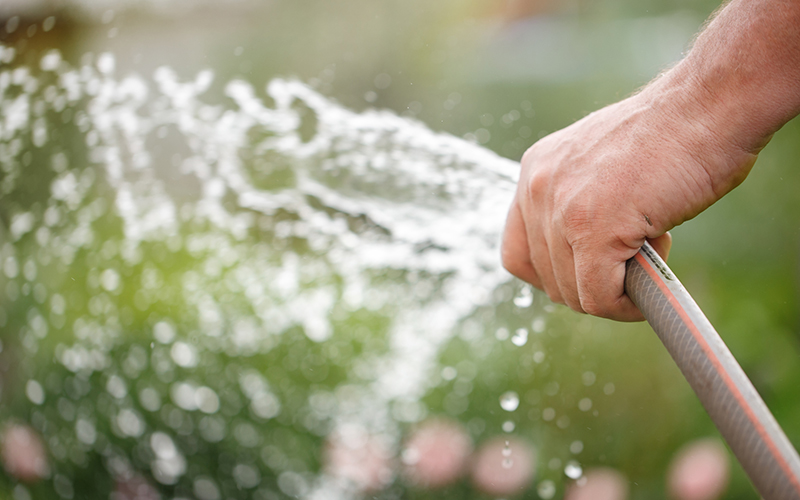
by Emily Main
Summertime is just around the corner, which means days outside gardening, running through the sprinkler, and a nice cold drink of water from…not your garden hose.
At least not if you have a conventional hose and don’t want to choke down a cocktail of heavy metals and plasticizers, according to a 2103 test done by HealthyStuff.org, a project of the Michigan-based Ecology Center.
The group’s product testers bought 21 new garden hoses from Lowe’s, Home Depot, Walmart, Target, and Kmart and analyzed levels of heavy metals and other dangerous substances that have been found in garden hoses in the past.
Most of the 21 hoses they tested were made from polyvinyl chloride, a toxic plastic that often contains endocrine-disrupting stabilizers known as organotins, which can interfere with hormonal and reproductive development. And in fact, a third of the PVC hoses contained these chemicals. More than half of the 21 hoses contained antimony, which, with prolonged exposure, can lead to kidney and liver damage, and about 5 percent contained bromine. Both antimony and bromine are markers of flame retardants used in plastics.
Then the researchers picked five hoses at random and sampled them for phthalates, a class of chemicals added to PVC to keep it flexible. They’ve been linked to hormonal imbalances, lowered IQ, and other behavioral problems in children. All five contained phthalates, with one hose containing as much as 18 percent phthalates by weight.
Finally, they left one hose sitting outside in the sun for two days filled with water and then tested the water to see what was in it. They found both phthalates and bisphenol A, another hormone-disrupting chemical used to produce PVC (even though most people are familiar with it as the material used to line food cans) in the water at levels higher than the recommended drinking water limits set by the Environmental Protection Agency and the Food and Drug Administration.
So, don’t drink out of conventional garden hoses if you don’t want to be exposed to a cocktail of harmful substances. And it’s not just the plastic that might be contaminated. Metal fixtures on hoses aren’t subject to the same limits on heavy metals that home faucets are, so even if the plastic itself is safe, the connectors and clasps could be adding lead to your water.
It’s not just your hose-drinking habit that’s of concern, either. Though the Ecology Center didn’t test soil to see if these hoses led to greater levels of antimony, phthalates, or BPA in plants watered with them, Jeff Gearhart, research director at HealthyStuff.org, says it’s plausible that hoses could be contaminating your garden. “We know that these chemicals make it into plants,” he says, referring to studies that have found high levels of phthalates in everything from cilantro to frozen pizza. “We just can’t show a connection between hoses and chemicals showing up in a plant.”
Does this mean an end to backyard fun? Not if you shop smartly. Look for a hose made with safe, food-grade materials like this 25’ Coiled Garden Works Hose. It’s drinking water safe with heavy-duty nickel connections, 50 percent recycled materials, and NSF and FDA grade materials, which means it’s clean and bacteria-resistant.
If you want to keep the garden thriving, outdoor pet water bowls full, and enjoy your own outdoor refreshment, then it’s time to ditch that toxic hose!
Adapted from a story originally published on Rodale Wellness.




No comments yet.